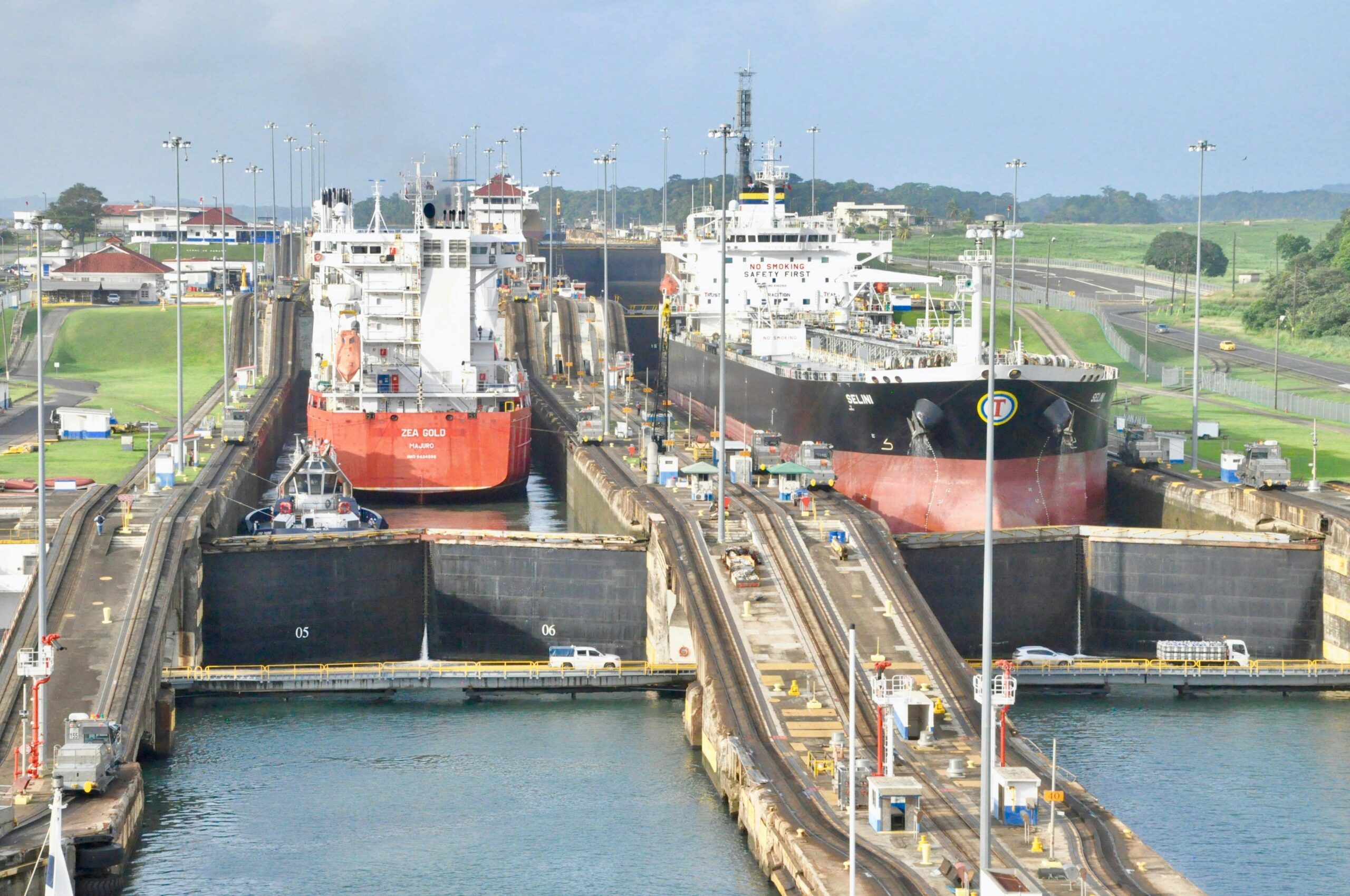Climate Crisis AM Edition 1.17.24 Panama Canal’s Survival

The Panama Canal, with its traffic cut nearly in half some days by drought, may no longer be an essential route for shipping. It has been over a century since it allowed ships to transit from the Atlantic to the Pacific by avoiding the much longer trip south of Cape Horn. Last year’s rainy season produced 41% less than average. Each transit through the canal requires 52 million gallons of fresh water to lift ships. Climate change is the culprit. In this case, a stronger-than-usual El Niño has triggered the loss of rain. Foreign Policy has taken the position that the canal may never return to its period of full shipping traffic transit.
Suez Canal Economics: $400 Million Tankers
London may face climate changes that could permanently alter the city and change residents’ way of life. Emma Howard Boyd, an expert in climate change, prepared a report for city officials. She said, “London has many good plans and programmes to prepare for climate hazards but we need to recognise that Londoners now face lethal risks.” Among these are wildfires, floods, and dangerously high temperatures. The analysis added that if emissions by city businesses and its residents are not reduced, the troubles in the forecast cannot be avoided. London is not the first city to receive such a warning. In the US, Miami has been warned of catastrophic floods from storms. In Phoenix, the warnings are about unsurvivable heat and drought.
A climate finance plan for New Mexico
The state of New Mexico will have a budget surplus, and Governor Michelle Lujan Grisham wants to use the money to combat climate change, crime, and homelessness. The total surplus will be about $13 billion. Among the options is a tax credit for the purchase of EVs. The federal government has a similar credit, but the number of qualified vehicles was cut sharply at the start of the year to encourage manufacturers to assemble their vehicles in North America.
Some elected officials in Vermont want fossil fuel companies to pay for climate change-fueled disasters. A new piece of legislation would create a climate superfund to identify the disasters related to greenhouse emissions. The plan may be undermined by possible legal challenges from the companies and groups of legislators who believe that the plan is too far-reaching.
More from ClimateCrisis 247
- Way up north, all is watery and Well: Yup, Alaska Is America’s Only Drought-Free State
- Is Detroit the new Vegas? automakers risk billions by continued Gambles On EVs
- ‘We’re going to be Late, grandma’: Thanksgiving Flight delays set to Cost airlines dearly
- Get used to a new word: ‘Bombogenesis,’ a Climate-Fueled weather threat on both coasts






